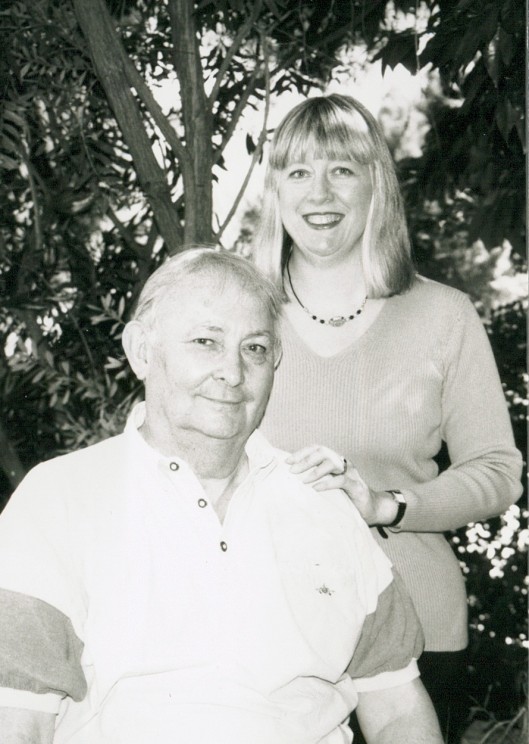Like most authors, when Rosemary Herbert speaks at book events about the mystery fiction anthologies she edited with Tony Hillerman, A New Omnibus of Crime and The Oxford Book of American Detective Stories and about her own new first novel, Front Page Teaser: A Liz Higgins Mystery, she always makes sure that she allows plenty of opportunity to for people to ask her questions. Lots of times authors become tired of the questions they are most frequently asked, but that it not true for Herbert, especially when the question is, “What was it like to work with Tony Hillerman?” Today – the second anniversary of Hillerman’s death – she reflects on this question.
I just love it when people ask me what it was like to work with Tony Hillerman. That’s because I never tire of remembering and sharing moments spent in his company. I always begin my answer to this question by keeping my promise to Tony. As he was reaching the end of his life, he told me two things. One was that he trusted me to make any future decisions about our two books. The other was that I should always remember to thank people who gather anywhere to hear me talk about our books. No matter how famous he became, Tony always appreciated each and every person who took an interest in his work. Hence, on behalf of Tony – and for my part, too – I thank readers of this piece for their interest in what I have to say here.
Two things leap to mind when I recall working with Tony Hillerman. The first is an image of this large, fatherly man standing in the doorway of his home near Albuquerque, New Mexico, greeting me warmly when I first arrived there to interview him for my 1994 book, The Fatal Art of Entertainment: Interviews with Mystery Writers. During an extended interview, Tony revealed much about his modest boyhood beginnings – and about his warm sense of humor – as he told me about the unusual manner in which he discovered the work of a writer who would exert a profound influence on his own work:
 “Well, in Sacred Heart, Oklahoma, where I grew up, there was no library,” Tony told me. “The only way to get books was to order them from the mimeographed catalog of the state library. I’ve often said this was a guaranteed way to get a broad education. You would order all kinds of adventure stories, like Captain Blood and the Tom Swift stories, and Treasure Island. And then, weeks later, a package would arrive, and in it you would find exciting material like History of the Masonic Order in Oklahoma! But on rare occasions you would get something about the Foreign Legion or a novel about a half-breed, Australian aborigine policeman who solved crimes in the Outback. That was my introduction to Arthur Upfield.”
“Well, in Sacred Heart, Oklahoma, where I grew up, there was no library,” Tony told me. “The only way to get books was to order them from the mimeographed catalog of the state library. I’ve often said this was a guaranteed way to get a broad education. You would order all kinds of adventure stories, like Captain Blood and the Tom Swift stories, and Treasure Island. And then, weeks later, a package would arrive, and in it you would find exciting material like History of the Masonic Order in Oklahoma! But on rare occasions you would get something about the Foreign Legion or a novel about a half-breed, Australian aborigine policeman who solved crimes in the Outback. That was my introduction to Arthur Upfield.”
Just as Upfield’s sleuth, the half-aboriginal Detective Inspector Napolean Bonaparte is torn between the different worlds represented by his parentage — and uses his knowledge of both to advantage in solving crimes – Tony’s Navajo Tribal Policemen Joe Leaphorn and Jim Chee solve mysteries by understanding the uneasy intersection of contemporary Am


